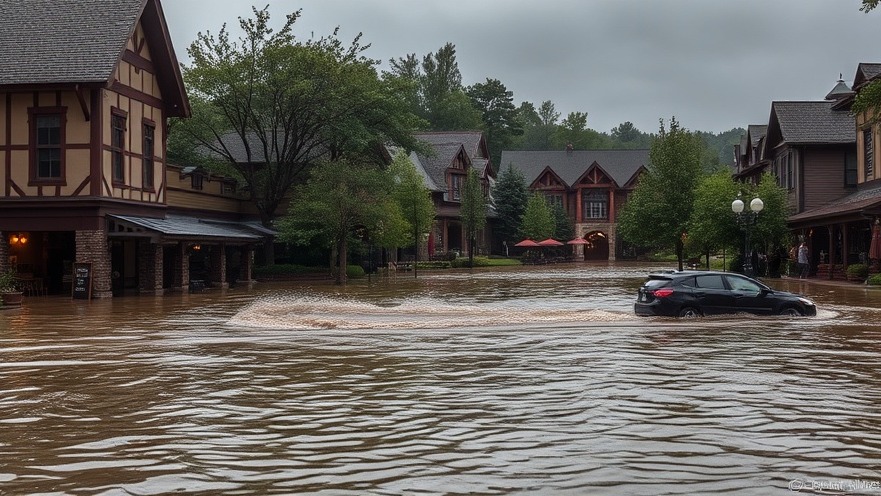
A New Hope for Asheville: The Helene Recovery Package
After months of tense negotiations, the North Carolina General Assembly has finally passed a significant recovery package for communities affected by Tropical Storm Helene. This bipartisan effort is poised to allocate $500 million in essential funding that aims to restore infrastructure and provide vital assistance to localities reeling from the devastating storm.
Understanding the urgent need for recovery in Asheville
The flooding caused by Helene was severe, particularly in Biltmore Village and surrounding areas. The Swannanoa and French Broad Rivers overflowed, leading to extensive damage to homes, roads, and local businesses. Lawmakers faced mounting pressure from constituents who needed immediate support.
In the wake of this disaster, state representatives recognized that an effective recovery strategy was critical not just for rebuilding but for ensuring the long-term resilience of Asheville’s infrastructure. This sentiment was echoed by Rep. Karl Gillespie, who emphasized the necessity of addressing the most pressing needs first, even if not all issues could be resolved in this initial package.
Bipartisan Collaboration: A Unique Approach
The unity expressed in the General Assembly, where every senator and representative voted in favor of the recovery bill, signals a rare moment of bipartisan cooperation. Initially, the Senate's recovery measure faced hurdles, but the urgency of the situation catalyzed swift action. The idea of filibuster-like tactics floated by Senate Democrats seems to have pushed the bill through, ensuring timely support reached the citizens of Asheville.
This collaborative effort is a reminder of the power of collective responsibility in times of crisis. Political leaders have set aside their differences to uplift their communities, illustrating how cooperation can lead to tangible outcomes. Their ability to find common ground for the greater good serves as a hopeful model for future legislative efforts.
Breakdown of the Key Funding Allocations
Within the approved $500 million package, a significant portion is allocated to North Carolina Emergency Management, emphasizing the importance of emergency preparedness and disaster response. They will receive approximately $208 million earmarked for federal disaster aid matching funds, which is pivotal for ensuring swift recovery operations.
The funding will also support crucial infrastructure projects, including renovations for public schools, state parks, and emergency services such as fire departments. Notably, some ticketed items like streamflow rehabilitation programs and agricultural crop loss assistance were successfully integrated back into the package, showing the adaptability and responsiveness of the elected officials to community needs.
The Road Ahead: Future Assistance and Challenges
While the passage of the recovery package is a significant step forward, many challenges still lie ahead. Local agencies will need to strategize on future funding and recovery efforts, as Rep. Gillespie pointed out, stating that this bill addresses immediate priorities but there will inevitably be additional needs down the line. The nature of disaster recovery often requires continuity of support, and citizens must remain engaged in the process, advocating for ongoing assistance.
This recovery initiative may serve not only as a remedy for those recently impacted but also as a blueprint for future disaster response strategies across other vulnerable regions in the state.
What Asheville Citizens Can Do
As residents of Asheville, staying informed and engaged with local governance is vital as recovery unfolds. Community participation can drive further funding and support initiatives. Attend town hall meetings, provide input on recovery priorities, and encourage local leaders to maintain and expand these recovery efforts.
The Helene recovery package represents not just a monetary lifeline but a collective movement toward resilience and rebuilding for Asheville’s future. Understanding the situation, remaining vigilant, and actively participating in the recovery discourse are essential for ensuring long-term stability in our community.
 Add Row
Add Row  Add
Add 


 Add Row
Add Row  Add
Add 

Write A Comment